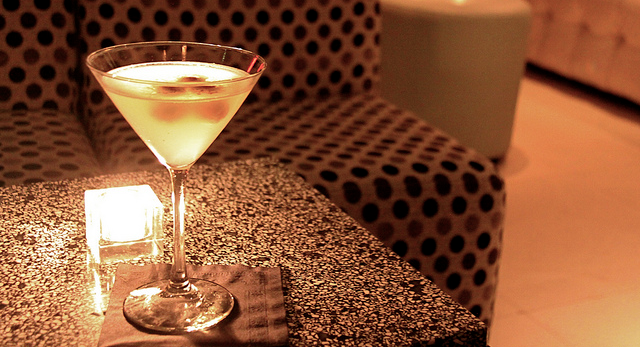Is Labeling Vodka As Gluten-Free Just Another Marketing Gimmick?
Ever since the Food and Drug Administration settled on regulations for gluten-free labels in August, companies have started shilling products like Shaquille O’Neal’s gluten-free Luv Shaq vodka, reports the Scientific American. But there’s no need for such labels on distilled spirits, argue some critics.
That’s because during the distillation process, heating up the alcohol removes it from the rest of the mixture used to make it.
Distillation involves heating, which vaporizes the alcohol as a way to remove it from the mixture. “Distilled spirits, because of the distillation process, should contain no detectable gluten residues or gluten peptide residues,” Steve Taylor, co-director of the University of Nebraska–Lincoln’s Food Allergy Research and Resource Program tells Scientific American. “Proteins and peptides are not volatile and thus would not distill over.”
Basically — none of the gluten-y ingredients will come with the alcohol and shouldn’t show up in amounts that would bother many with gluten sensitivities. The rules governing gluten-free labels say anything bearing that distinction must contain less than 20 parts per million using precise, scientific methods. That testing might not be necessary, adds Taylor, calling gluten-free vodka a “silly thing.”
“All vodka is gluten-free unless there is some flavored vodka out there where someone adds a gluten-containing ingredient,” he adds. “I know that many celiac sufferers are extra-cautious. That is their privilege. But their [vodka] concerns are usually not science-based.”
But while there aren’t any studies that prove distilled spirits will bother people with gluten intolerances, many still report symptoms after drinking distilled grain-based products, says the executive director of te Celiac Sprue Association.
She says that because the gluten is in the product before it ferments, there’s no way it all stays behind during distillation.
“If distillation took place in chemistry labs, it would be different,” she adds, because commercial distillers “often stop the distillation process for the optimum flavor of their liquor or add ingredients after distillation. If commercial distillation was perfect, why would some beverages require multiple distillations?”
It appears that it just depends on the individual — if you’ve ever suffered adverse effects from drinking distilled spirits, it’s probably best just to stay away altogether. But for other, Taylor says you should be good to go — label or no.
“The FDA and other public health agencies around the world have reviewed the evidence and concluded that products with less than 20-ppm gluten are safe for the vast majority of celiac sufferers,” as he puts it.
Should Vodka Be Marketed as Gluten-Free? [Scientific American]
Want more consumer news? Visit our parent organization, Consumer Reports, for the latest on scams, recalls, and other consumer issues.


